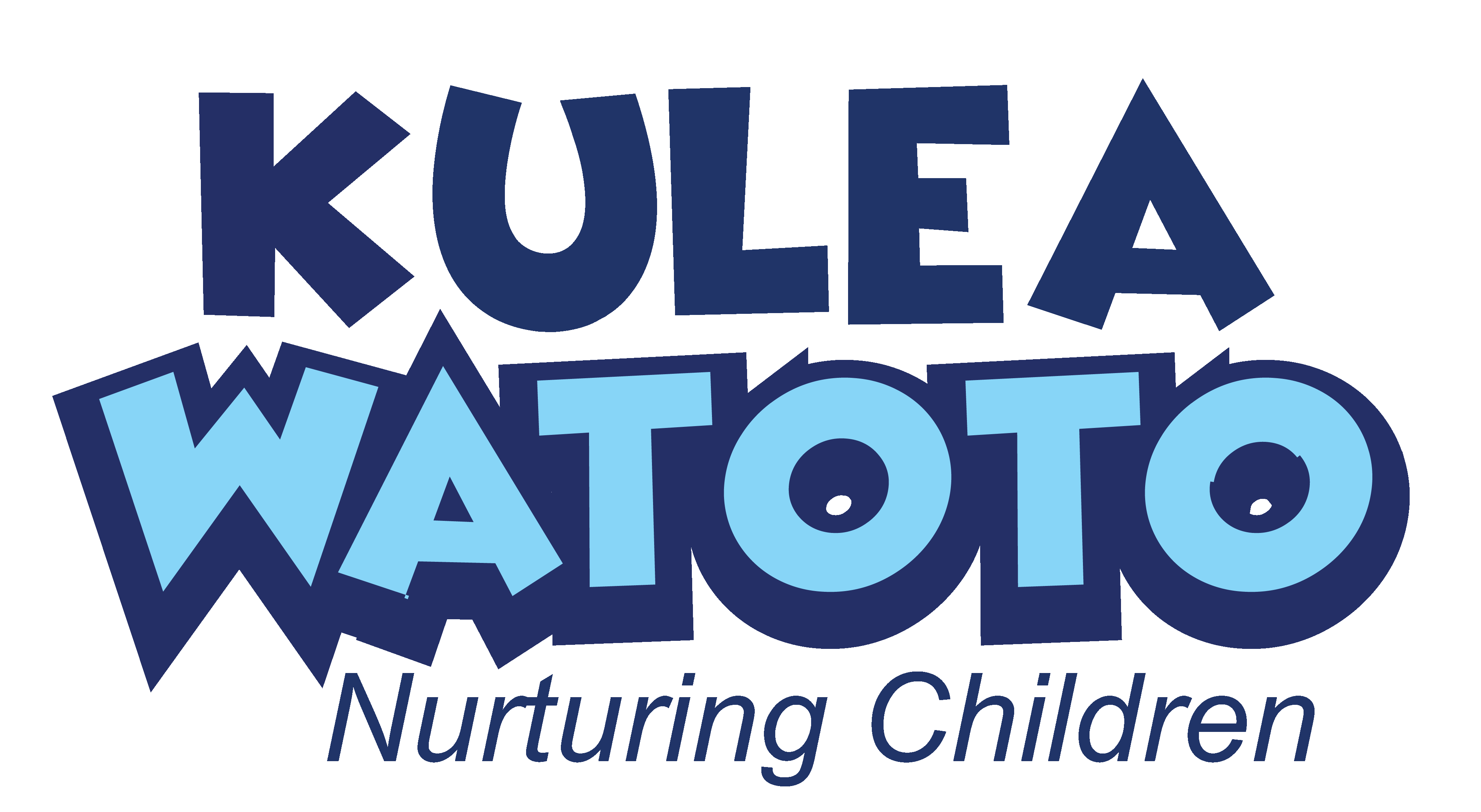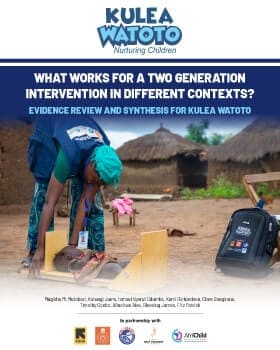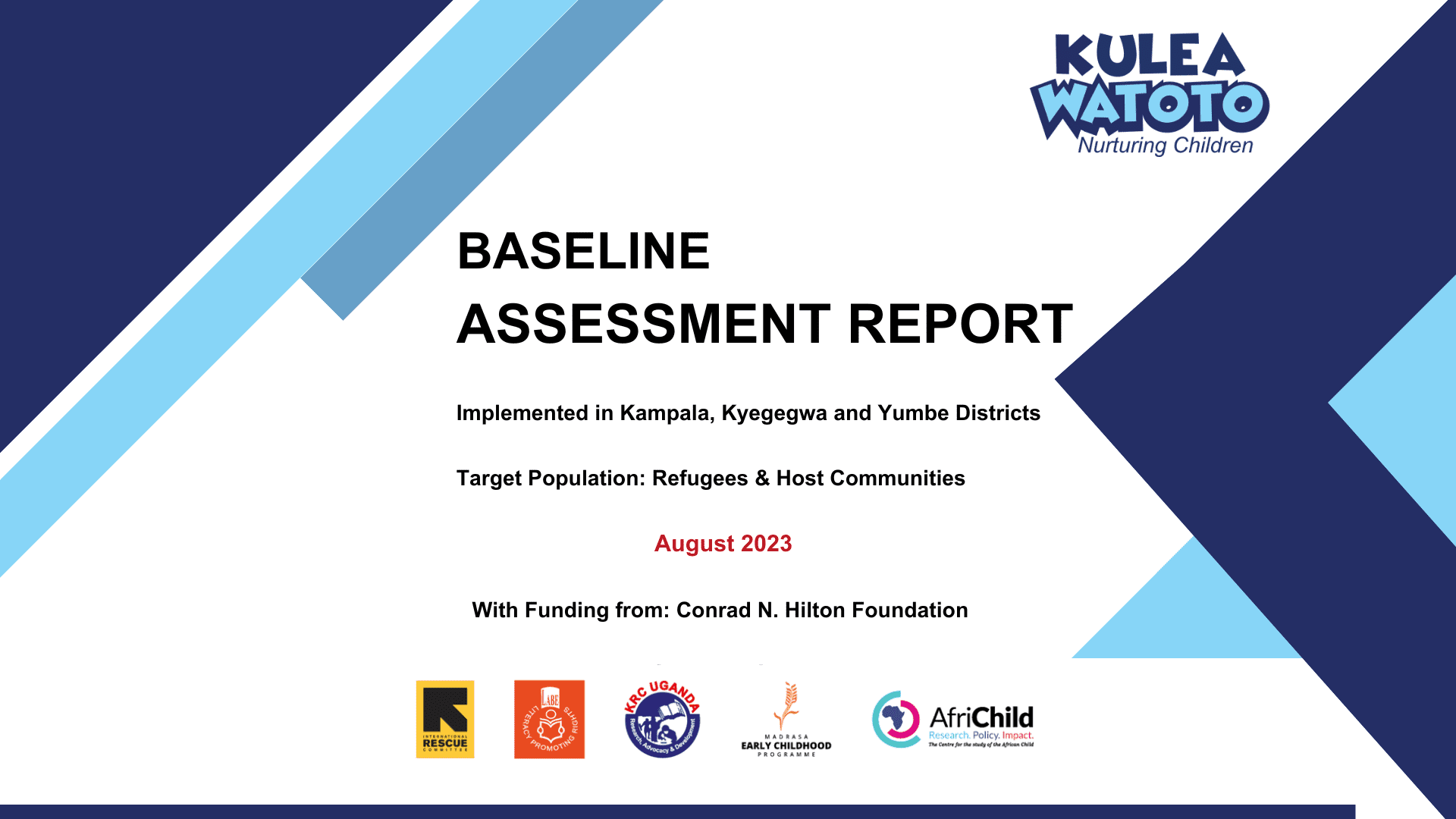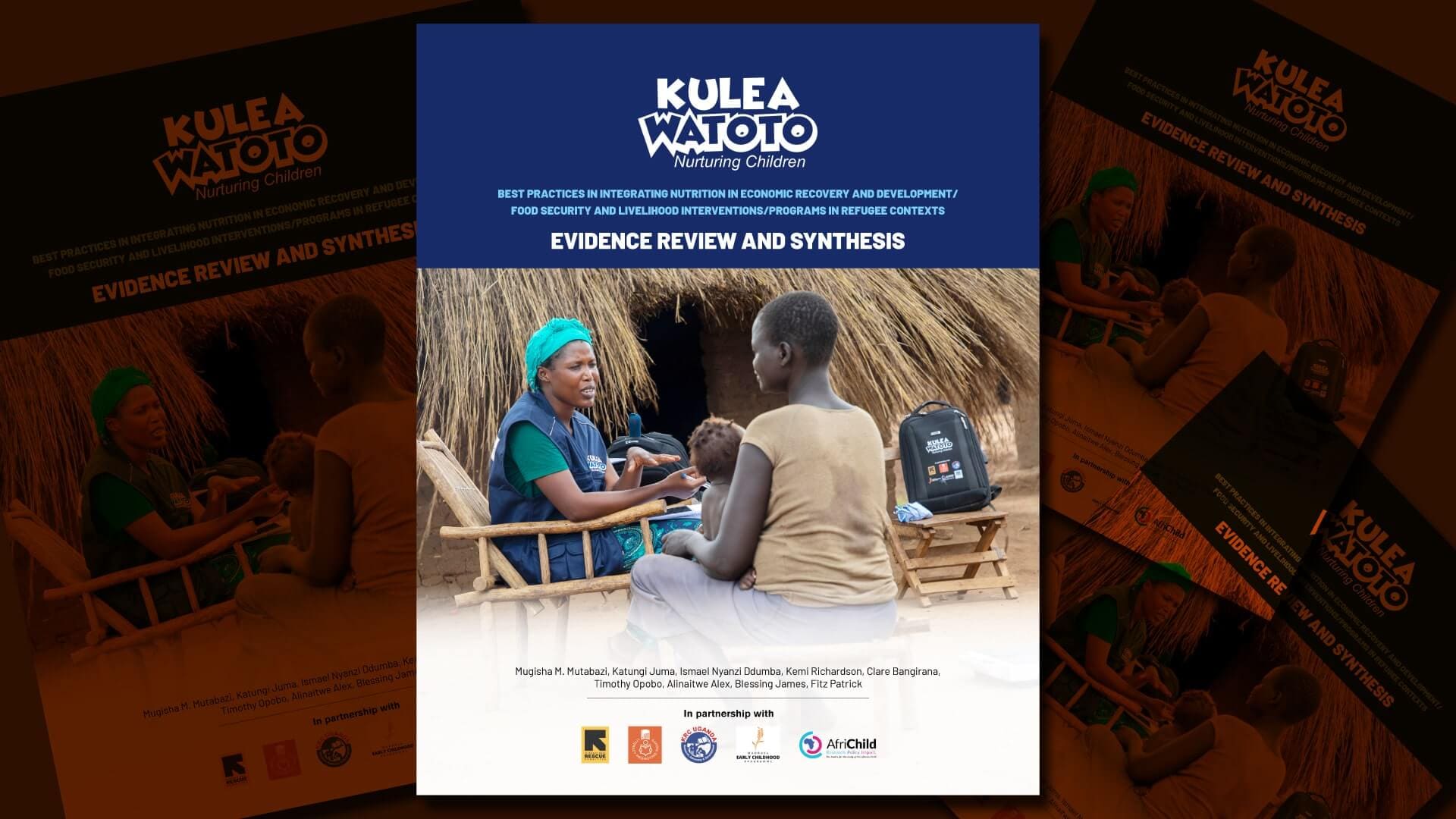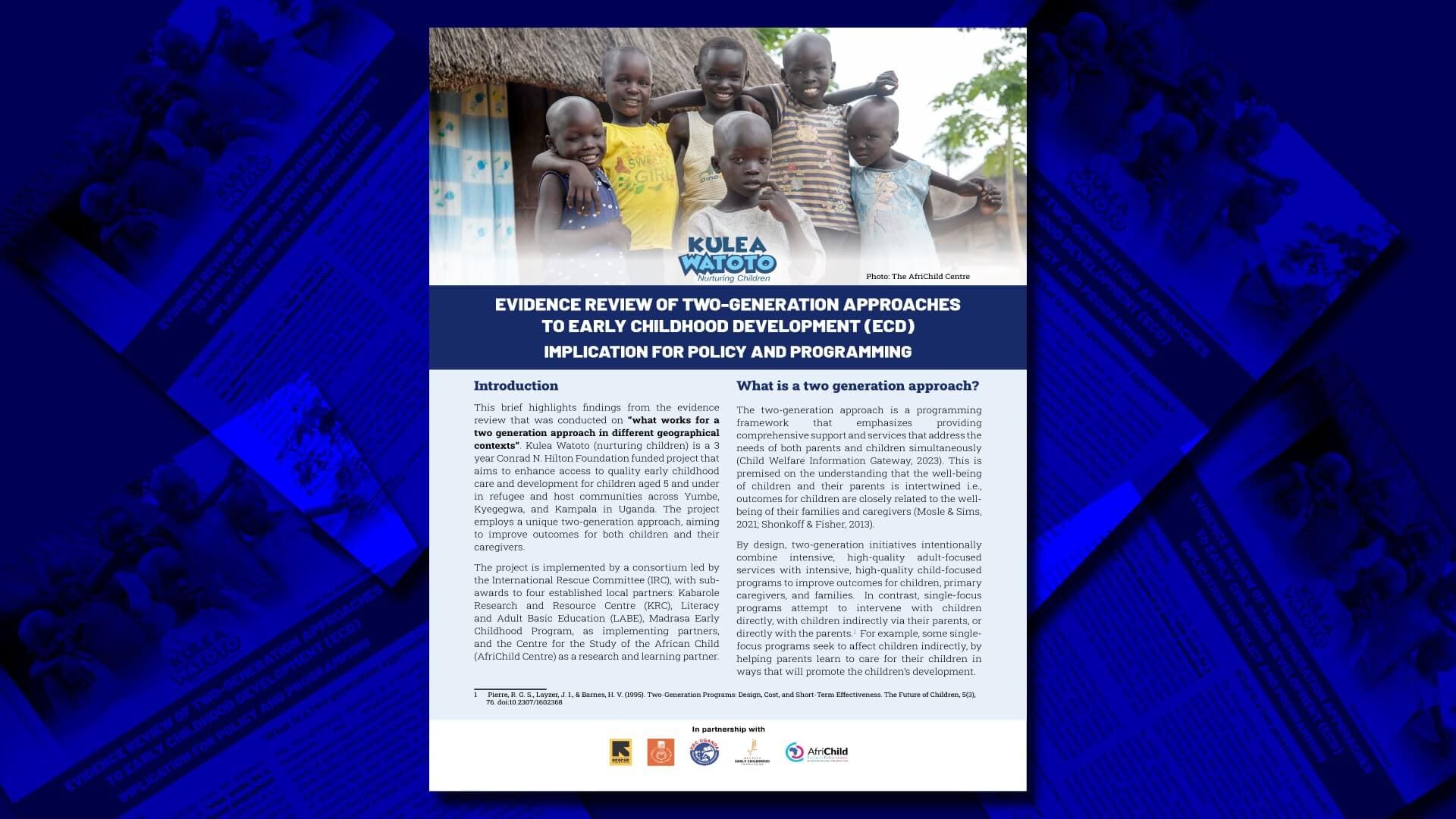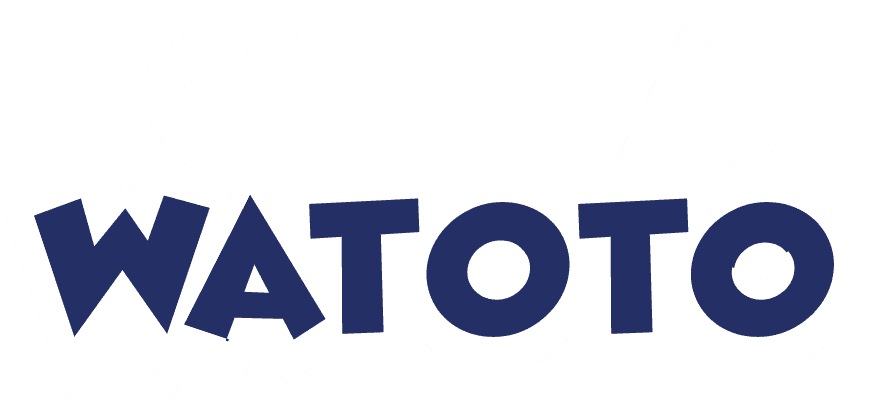What works for a Two-Generational Model Evidence Review
What works for a Two-Generational Model Evidence Review
Kulea Watoto (nurturing children) is a 3 year Conrad N. Hilton Foundation funded initiative. It is implemented by a consortium led by the International Rescue Committee (“IRC”), with sub-awards to four established local partners: Kabarole Research and Resource Centre (KRC), Literacy and Adult Basic Education (LABE), Madrasa Early Childhood Program, and the Centre for the Study of the African Child (AfriChild Centre). Kulea Watoto - meaning “nurturing children” in Swahili - aims to improve access to quality early childhood care and development for children aged 5 and under in refugee and host communities in Uganda across Yumbe, Kyegegwa and Kampala.
The primary objective of this evidence review is to examine two-generation programs and their effectiveness in various geographic contexts. The review involves a comprehensive examination of multiple two-generation programs, extracting valuable insights from them. These insights will be utilized to refine the design and implementation of the Kulea Watoto (KW) program, aiming to enhance outcomes for children and families in the targeted districts.
In recent years, there has been growing recognition of the interconnectedness between the well-being of parents/caregivers and their children. Two-generation approaches have emerged as a promising strategy to address the needs of both generations simultaneously, aiming to improve outcomes for children and parents/caregivers together (Barnett, W.S., and L.N. Masse., 2007).
